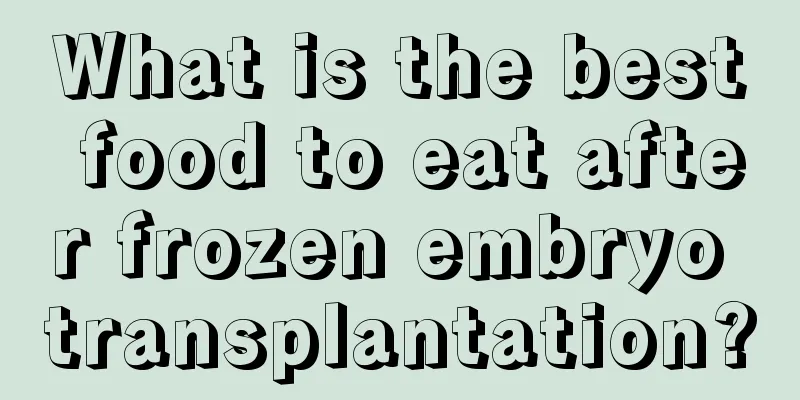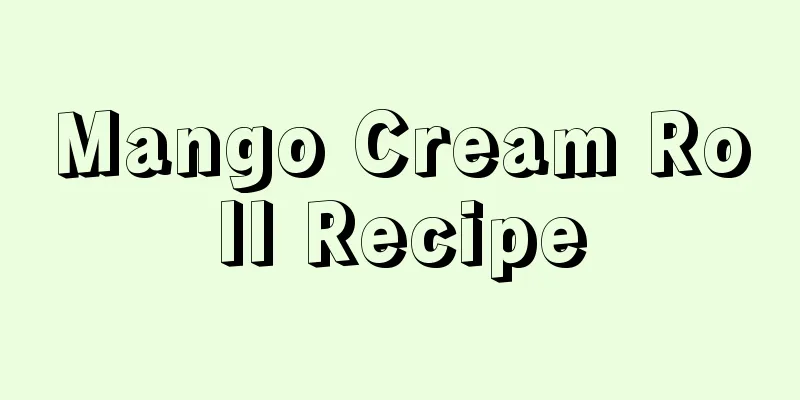What is the best food to eat after frozen embryo transplantation?

|
In fact, many patients who have just completed in vitro fertilization are very concerned about what they should eat, because diet can determine whether the test-tube baby has matured in the uterus and can safely achieve a truly purposeful restorative effect. During this period, patients should maintain a light diet and eat some high-protein foods that are easy to digest, which will be more beneficial to the body. 1. Eat light food and choose easily digestible food Because patients have been bedridden for too long after transplantation, their gastrointestinal motility is slow and gastrointestinal emptying is slow. Therefore, we recommend choosing light, easily digestible, and non-greasy foods, such as various fresh vegetables, fruits, fresh milk, eggs, fish, rice porridge, etc. Fried foods are difficult to digest, and soybeans and soy beans are difficult to digest. 2. High-protein diet Because many patients experience abdominal distension and ovarian hyperstimulation syndrome after egg retrieval, we recommend eating more high-protein foods, such as eggs, milk, lean meat, fish and other protein-rich foods. Eat small meals frequently, and try to eat more diuretic foods such as watermelon juice, orange juice, winter melon soup, carrot soup, mung bean soup, etc., and try to drink more and urinate more. Dry beans, potatoes, yams and sweets can cause bloating and should be consumed in moderation. 3. Try to eat less cold drinks and spicy foods Spicy food is a general term for fried foods, chili peppers, peppercorns, garlic, mustard, pepper, ginger, tobacco, alcohol and alcoholic beverages. Cold drinks can easily stimulate the gastrointestinal tract and cause stomach pain, abdominal pain, diarrhea, etc. Spicy food can also enhance the large intestine's absorption of water, resulting in dry and hard stools and constipation. Both constipation and diarrhea can cause uterine contractions, which is not conducive to embryo implantation. 4. Eat more foods rich in dietary fiber After transplantation, patients are prone to constipation due to their low activity and slow gastrointestinal activity. We recommend that patients eat more foods rich in dietary fiber, such as celery, leeks, lotus root, yam, etc. |
<<: How to make hand-pulled pancake dough
>>: Can patients with cerebral hemorrhage take Panax notoginseng powder?
Recommend
How to make milk oatmeal porridge
When we were young, our mother was around and we ...
What does Fist Mother do?
Have you ever heard of what fist mother is? If yo...
How to make original milky papaya juice
Every festive season makes people miss their fami...
How to make fat pancakes
Learning to cook some common home-cooked dishes a...
New-style fish-flavored shredded pork recipe
In the eyes of many people, you are successful an...
How to make handmade cupcakes
Appetite is also a desire, and in order to satisf...
How to make fried squid with shacha sauce
Nowadays, life and work are busy and stressful. M...
How to cook fish belly with five-flowered garlic
After working five days a week, you should be exh...
How to make spinach and egg noodle soup
Do you salivate every time you see a food show on...
How to make homemade braised duck feet
Everyone is a foodie. If not, it’s because you ha...
How to make sweet and sour meatballs
If we want to eat healthily, we need to cook our ...
How to make blueberry cheesecake
As a seasoned foodie, you must be shocked every t...
How to make watermelon juice tart
Busy work and difficulty in cooking are the main ...
How to make sesame pork floss biscuits (electric baking pan version)
People who are busy with work often order takeout...
How to cook tomato and cowpea
A healthy life is of course inseparable from nutr...









